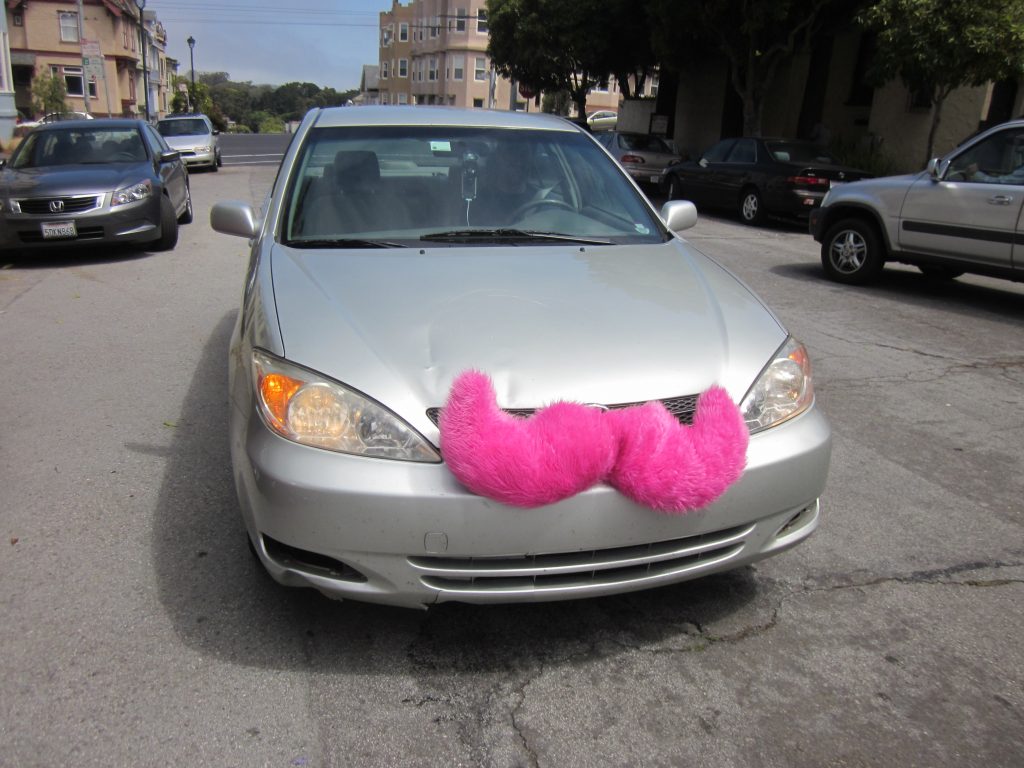Even though Uber is looked at as one of the key ride sharing facilities being offered in almost all the countries in world, not many know about Lyft. With a revenue of over $ 700 million as of the 2016 financial year, Lyft secured the second position for itself in this particular section, standing neck to neck with Uber. With an extremely impressive marketing strategy and a plan that surprised everyone since the moment of its launch, Lyft has seen major growth from its inception to date.
The origin of Lyft

Lyft was initially known as a Zimride and was founded by Logan Green and John Zimmer in the year 2007. The two met through a common friend, when John Zimmer posted on the said friend’s wall, saying he was looking for opportunities in the ride sharing business for long trips. Logan Green’s interest was immediately aroused and he knew he could not sleep till he contacted Logan.
When the two started working together, the first thing they did was to create a business model for Lyft. Green and Logan decided Lyft would be the go to service for people looking at sharing rides when they were travelling out of town. People would hire drivers to use their cars to transport them to their destination and after the drive was completed, riders would automatically be debited for their journey. 80% of the money would go to the person doing the driving while the rest was allocated for Lyft.
Initially, Logan and Zimmer introduced Lyft as a subsidiary of Zimride, without giving it a complete identity. However, looking at the rising popularity of a car service as this, the two founders dropped Zimride altogether and Lyft was the only service they marketed in the year 2013.
The reason for Lyft’s popularity

One of the major reasons Lyft became so immensely popular was that not only did the founders create a new ride sharing format, they also encouraged community building. Drivers were asked to put fuzzy mustaches on the front of their cars while riders were encouraged to sit in the front with the drivers. This method was not used by Uber so far and because of this unique ride sharing concept, Lyft took off with unexpected popularity.
Growing everyday, Lyft became so popular that by the year 2017, the service announced it would be adding a further 100 cities of the United States to its continuously growing roster. In an industry that was for so long dominated by classic styles and clean cuts, Lyft made a splash with its shiny cars and bright logos.
From changing the way people drove around to turning ride sharing into a community affair rather than just another app like Uber, Lyft has created a niche for itself in this sector. Despite facing several regulations and restrictions just like its contemporaries, Lyft has managed to grow through the years and turned into a billion dollar company not through luck but through its no nonsense and purely business attitude!
While the bright pink mustache may have disappeared from Lyft’s logo, it still plays an integral part in the journey of this innovative ride sharing service. From introducing female drivers for the first time in this field to becoming a unique community, Lyft has really lifted the way people share rides!


h5rkq
June 8, 2025 at 11:31 am
get cheap clomiphene for sale how to get cheap clomiphene no prescription get cheap clomiphene prices clomiphene price cvs buy generic clomid pill cost cheap clomiphene prices can you buy cheap clomiphene without insurance
J88
November 6, 2025 at 1:07 pm
Đến với J88, bạn sẽ được trải nghiệm dịch vụ cá cược chuyên nghiệp cùng hàng ngàn sự kiện khuyến mãi độc quyền.
谷歌站群
November 7, 2025 at 4:16 am
专业构建与管理谷歌站群网络,助力品牌实现全域流量的强势增长。谷歌站群
iwin
November 8, 2025 at 1:36 pm
iwin – nền tảng game bài đổi thưởng uy tín, nơi bạn có thể thử vận may và tận hưởng nhiều tựa game hấp
谷歌外推
November 11, 2025 at 12:30 am
采用高效谷歌外推策略,快速提升网站在搜索引擎中的可见性与权重。谷歌外推
GO88
November 16, 2025 at 3:05 am
Tham gia cộng đồng game thủ tại Go88 để trải nghiệm các trò chơi bài, poker phổ biến nhất hiện nay.
MM88
November 20, 2025 at 4:22 pm
Khám phá thế giới giải trí trực tuyến đỉnh cao tại MM88, nơi mang đến những trải nghiệm cá cược thể thao và casino sống động.
Kuwin
November 25, 2025 at 5:49 am
kuwin sở hữu kho game đa dạng từ slot đến trò chơi bài đổi thưởng, mang đến cho bạn những giây phút giải trí tuyệt vời.